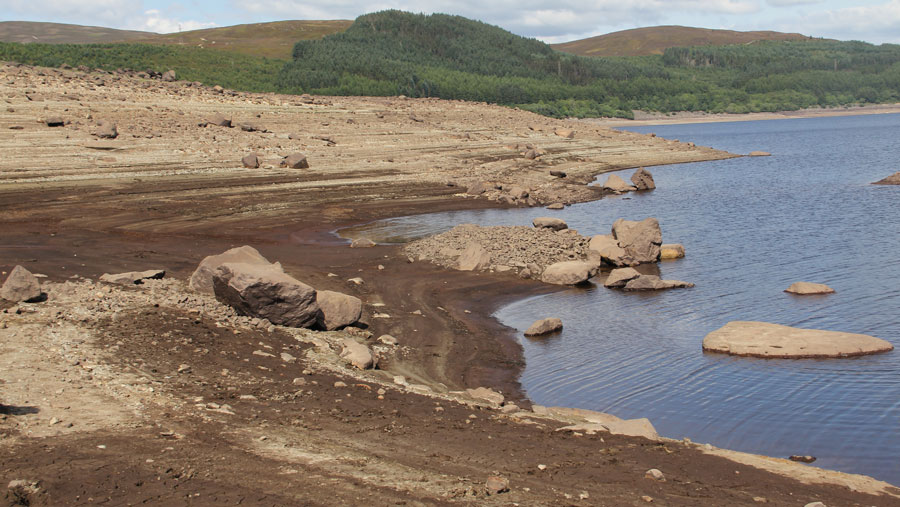Farmers face ‘huge challenge’ as drought declared official
 © Adobe Stock
© Adobe Stock Farm leaders have called for better plans to manage the country’s water supply that take more account of food production, following the declaration by the Environment Agency (EA) that parts of the country are now officially in “drought” status.
The announcement that the “drought trigger threshold” has been met in eight parts of the South West, central and southern England, and the East of England, came after a meeting of the so-called National Drought Group on Friday (12 August).
See also: Water abstraction ban a ‘devastating blow’ for Fife veg growers
This group is made up of senior decision makers from the EA, government, water companies and representative groups such as the NFU and AHDB.
In reaching their decision, the group considered factors such as rainfall, river flows, groundwater and reservoir levels, and the dryness of soils, as well as the effect on public water supply, abstractors (including farmers) and the environment.
Their statement confirmed that the change to drought status does not automatically trigger actions, but it does give the EA and water companies the right to step up their drought plans, such as imposing hosepipe bans and limiting water abstraction.
“We are better prepared than ever before for periods of dry weather, but we will continue to closely monitor the situation, including impacts on farmers and the environment, and take further action as needed,” said water minister Steve Double.
Challenging
NFU deputy president Tom Bradshaw said that the situation on the ground continues to be hugely challenging across all farming sectors.
“Many farmers are facing serious impacts, ranging from running out of irrigation water to not having enough grass and having to use winter feed.”
This highlighted the urgent need for government and its agencies to better plan for and manage the nation’s water resources, “prioritising water for food production alongside environmental protection”.
“This will help build resilience into the farming sector and provide investment opportunities for irrigation equipment and to build more on-farm reservoirs,” said Mr Bradshaw.
He added that there was a need for the EA to further support the industry with flexible abstraction measures, potentially giving more farmers the ability to trade volumes of water between themselves.
‘Worst in my life’
These views were echoed by Yorkshire farmer and chairman of the Environment, Food and Rural Affairs (Efra) committee Sir Robert Goodwill, who told BBC Radio’s World at One programme that the current dry conditions were “probably the worst in my farming life”.
He pointed to the problems of getting oilseed rape into the ground on his own farm, but also to the fact that potato and field vegetable crops across the country were under great stress, while livestock farmers were having to break into their winter rations.
With limits being placed on the ability of some farmers to abstract water, the government might need to concentrate a little more on food production policies – such as grant aid for reservoirs – and a little less on things like rewilding, he said.
AHDB head of environment Jonathan Foot complained that at present there is limited support for farmers to sustain crop growth and harvest them, with water restrictions prioritising consumers and protecting the environment.
“As a member of the National Drought Group, AHDB has highlighted that food production requires protection within water restrictions to alleviate the pressures facing farmers,” he said.
Records
The EA has previously reported that July was the driest in England since 1935, and since records began for the East and South East.
Thirteen EA monitored indicator rivers are at the lowest levels yet recorded, and soil moisture deficit is comparable to that seen at the end of the 1976 drought, it added.
The Met Office has indicated that there will be some thunderstorms from Sunday evening in parts of the country, and a cooling of temperatures next week. But any rainfall is likely to be sporadic and the impacts of the drought could be long lasting.
